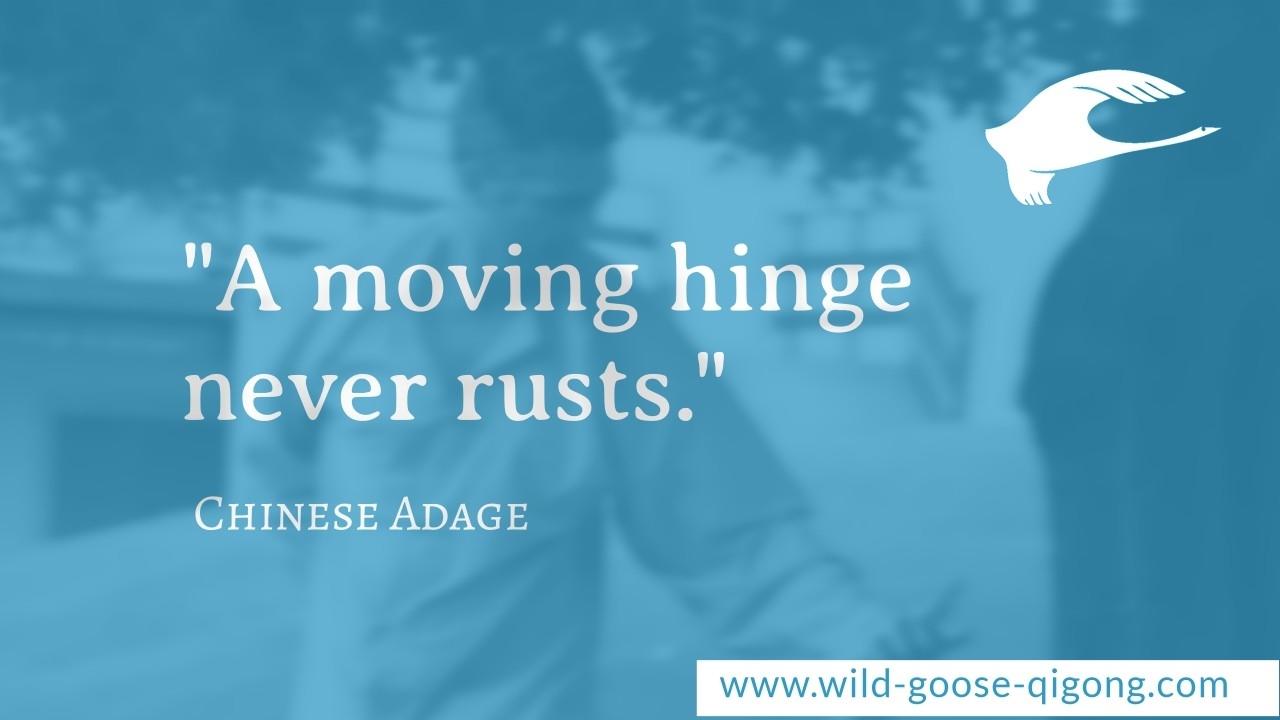Wild Goose Qigong Blog - "A Moving Hinge Never Rusts"

“A moving hinge never rusts”
This ancient Chinese adage appears in the biography of the Daoist physician Hua Tuo c. 200. It also appears in this interpretation: “A [wooden] hinge is not eaten by woodworm” and often coupled with the phrase, "Flowing water does not stagnate [go mouldy].”
The Daoists have a wonderful way of observing natural processes and applying them, either directly or metaphorically, to the human condition. And this quote is probably one of my favourites.
Movement, like regular Qigong practice, lubricates the joints, moves the blood and Qi, strengthens the bones and soft tissues. Gentle physical exercise can reduce oxidative stress in the brain and body. Physical overexertion, on the other hand, can increase oxidation (‘rusting’).
The simple advice is: move.
But we can take the image of the hinge a step further: after movement (or transition) there is rest. But rest is not inactive. Rest is not redundant. After all, when still, the hinges still hold up the door. There is action in their inaction That is why in Wild Goose Qigong we practice Dong Gong (Movement) followed by Jing Gong (Stillness).
Note: some attribute Hua Tuo as the originator of the Five Animal Frolics Wuqinxi 五禽戲 - an early form of Daoyin / Qigong exercise.
Over to you:
What are your thoughts on this quote? Will it change the way you think about your Wild Goose Qigong practice? Do you have a favourite Chinese wisdom or adage?

